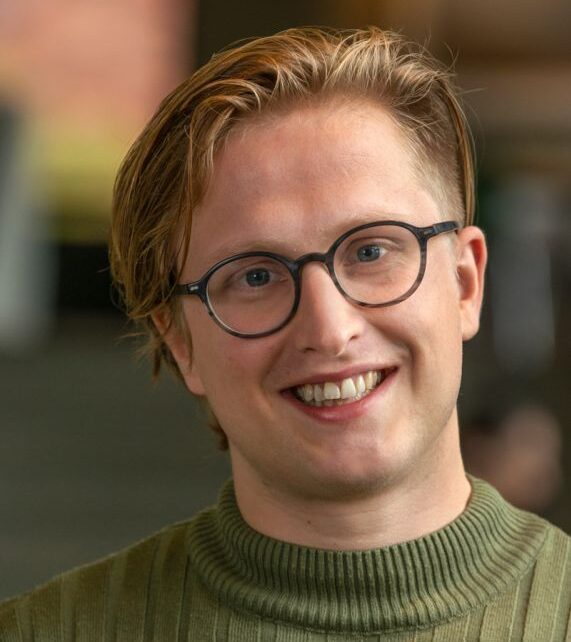 Kay Mars holds a Master of Science in Cultural Anthropology and Development Studies (Radboud University) and a Master of Science in Human Geography (University of Amsterdam). With a specialization in “Diversity, multicultural citizenship and urban geographies,” his latest thesis project revolved around mapping urban queer sexuality in Porto Alegre (RS), Brazil. Kay was involved with the Migration & Diversity Center at the Vrije Universiteit Amsterdam from 2017 to 2019, where he coordinated seminars and academic workshops on issues related to migration and diversity. Currently, Kay is working as a PhD candidate at the Department of Sociology at Erasmus University Rotterdam.
Kay Mars holds a Master of Science in Cultural Anthropology and Development Studies (Radboud University) and a Master of Science in Human Geography (University of Amsterdam). With a specialization in “Diversity, multicultural citizenship and urban geographies,” his latest thesis project revolved around mapping urban queer sexuality in Porto Alegre (RS), Brazil. Kay was involved with the Migration & Diversity Center at the Vrije Universiteit Amsterdam from 2017 to 2019, where he coordinated seminars and academic workshops on issues related to migration and diversity. Currently, Kay is working as a PhD candidate at the Department of Sociology at Erasmus University Rotterdam.
‘The most central to the Refugee Academy is its engaged character and facilitating a democratic research context. This means opening up a space in which various forms of conventional and unconventional knowledge are connected.’
What is your scientific background and expertise?
I have a post-graduate degree in Human/Urban Geography (University of Amsterdam) and a post-graduate degree in Cultural Anthropology and Development Studies (Radboud University Nijmegen). My research expertise is on the every day, social and spatial experiences of queer people in the city. My thesis research evolved around everyday experiences of hetero- and homonormativity by young gay and bisexual men in Porto Alegre (RS), Brazil.
Furthermore, I have been involved in the Migration and Diversity Centre (MDC) at the Vrije Universiteit Amsterdam, engaging with themes around intersectionality, diversity, and inclusion.
What role do you have within the Refugee Academy, and what keeps you busy in this role?
Within the Refugee Academy, I fulfil the role of project coordinator and junior researcher. As project coordinator, I manage all the different websites on which (parts of) the Refugee Academy is featured. Together with Halleh Ghorashi, I coordinate the monthly meetings of all three research projects that are embedded in the Refugee Academy. As a junior researcher, I manage the online mapping and database of the “Learning Crossroads for Refugee Inclusion”-project. Furthermore, I help with data collection and analysis within the “Towards an Inclusive Work Environment”-project.
What do you feel is the most important about/central to the Refugee Academy, and why?
I feel that the most central to the Refugee Academy is its engaged character and facilitating a democratic research context. This means opening up a space in which various forms of conventional and unconventional knowledge are connected. At the same time, it also entails ensuring that the voices of refugees themselves – voices that traditionally have been ignored or silenced within academia – become and remain central in all that we are doing.
What is your personal ambition within the Refugee Academy, and how would you connect this to your work and/or life outside the Refugee Academy?
My personal ambition is to continue and enlarge the unique approach to refugee inclusion that the Refugee Academy has followed in the past years. I see it as a challenge to build bridges between theoretical knowledge and the personal, lived experiences of people. It often feels like navigating between two worlds. This also links back to my background as an anthropologist: to make the strange familiar and the familiar strange. Exposing and questioning certain self-evident values and norms is an important part of this.
Refugee Academy- related projects :
– Engaged Scholarship and Narratives of Change
– Learning Crossroads for Refugee Inclusion
– Towards a structural place for refugees’ perspective and vision in policymaking


